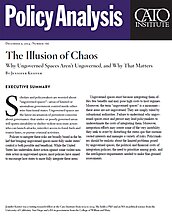Scholars and policymakers are worried about “ungoverned spaces”—areas of limited or anomalous government control inside otherwise functional states. Ungoverned spaces are the latest incarnation of persistent concerns about governance: that under—or poorly governed areas will spawn instability or shelter violent non-state actors who can launch attacks, interdict access to fossil fuels and transit lanes, or pursue criminal activities.
Policies to mitigate these risks are broadly based in the belief that bringing ungoverned spaces more fully under states’ control is both possible and beneficial. While the United States has undertaken direct action against some violent nonstate actors in ungoverned spaces, most policies have aimed to encourage host states to more fully integrate these areas.
Ungoverned spaces exist because integrating them offers few benefits and may pose high costs to host regimes. Moreover, the term “ungoverned spaces” is a misnomer—these areas are not ungoverned. They are simply ruled by subnational authorities. Failure to understand why ungoverned spaces exist and persist may lead policymakers to underestimate the costs of integrating them. Moreover, integration efforts may create some of the very instability they seek to avert by disturbing the status quo that sustains vested interests and manages a variety of risks. Policymakers should be realistic about the limited problems posed by ungoverned spaces, the political and financial costs of integration policies, the need to prioritize among goals, and the intelligence requirements needed to make fine-grained assessments.

